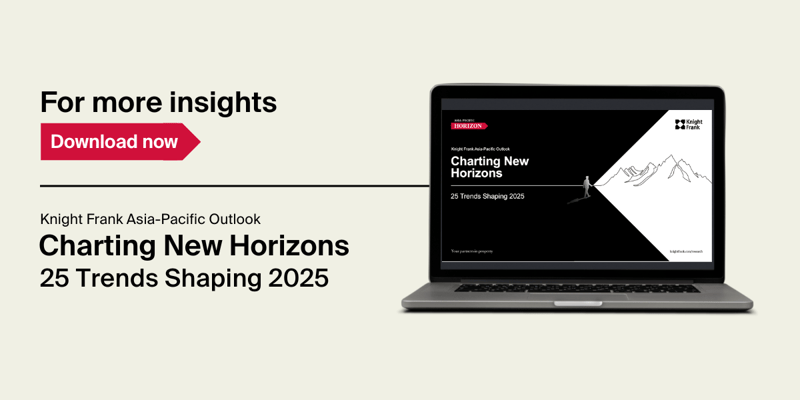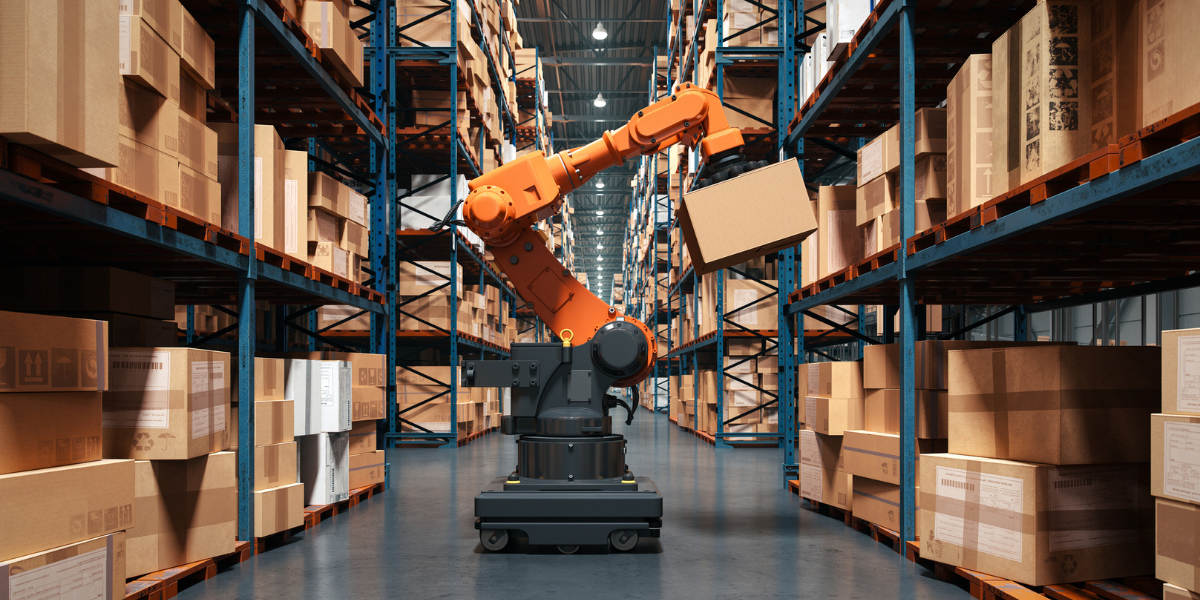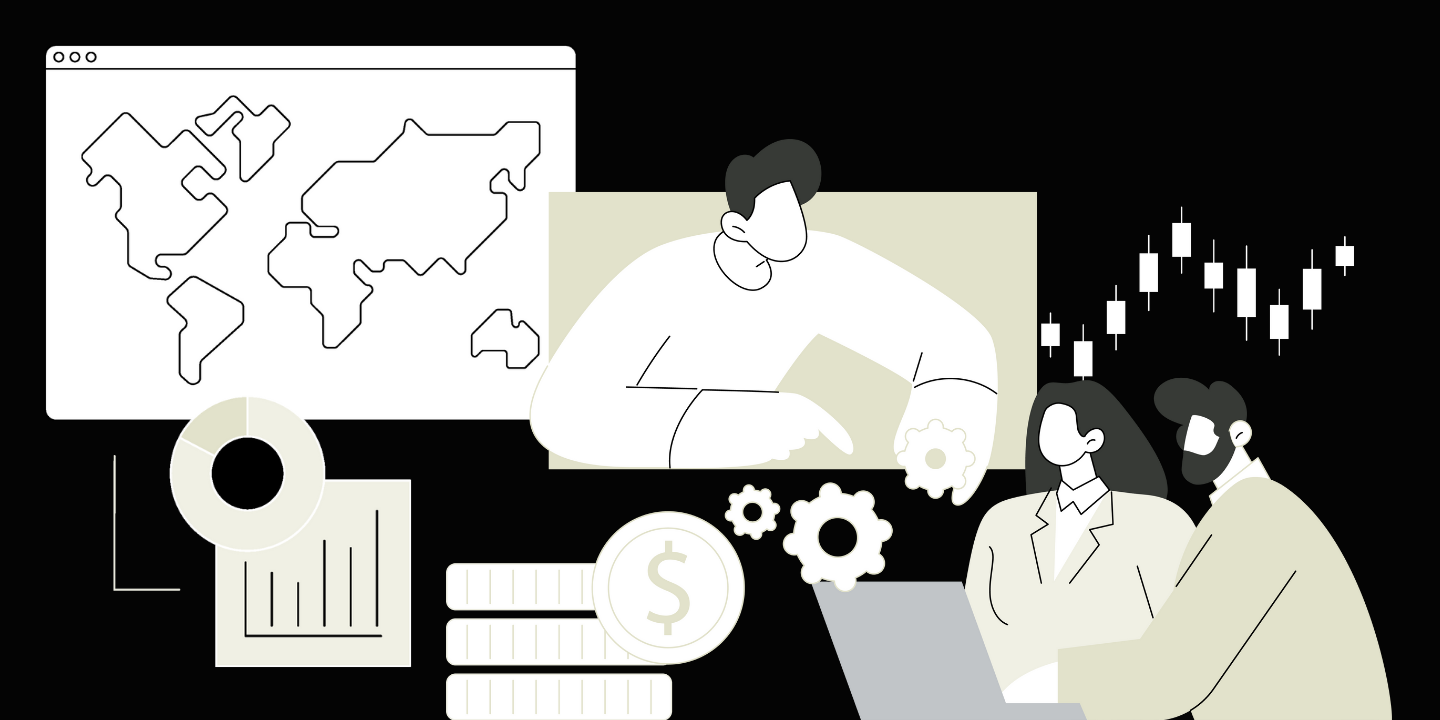As we step into 2025, the Asia-Pacific real estate landscape is undergoing a profound transformation, with artificial intelligence (AI) and data analytics taking centre stage. Corporate real estate leaders are increasingly turning to these technologies to drive optimisation, enhance decision-making, and gain a competitive edge in an ever-evolving market.
The data revolution in corporate real estate
The standardisation and increased availability of data, coupled with advancements in data warehousing and digitisation, have created an environment ripe for innovation. The rise of third-party analytics has further expanded the information set available to real estate professionals, making it richer and more comprehensive than ever before.
One of the most significant developments is the ability to make sense of unstructured data and link traditional and non-traditional sources through predictive analytics and machine learning algorithms. This breakthrough has elevated unconventional data to a key differentiator in the real estate industry, providing insights that traditional backward-looking data simply cannot match.
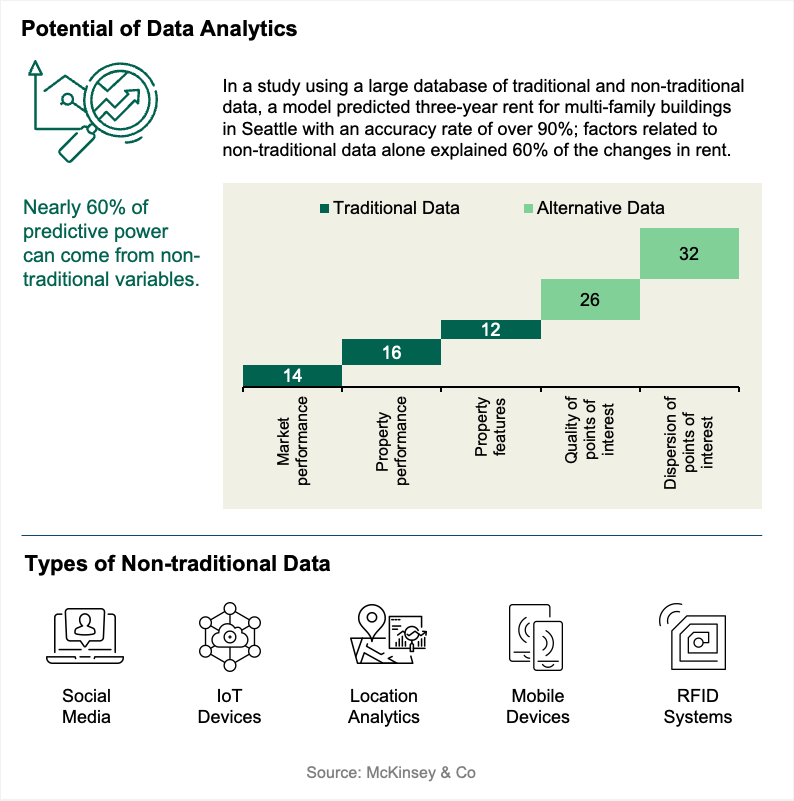
Turning numbers into strategic actions
2025 marks the year when corporate real estate in Asia-Pacific fully embraces data-driven decision-making. Companies are increasingly relying on advanced analytics and real-time data from various sources, including IoT sensors, mobile phone signal patterns, and social media. These data sources are being leveraged to provide location analytics, anticipate shifts in employee behaviour and market trends, and even inform optimal real estate strategies for remote and in-office work. This shift represents a significant departure from the traditional, intuition-based approach to transactions and space planning. In Asia-Pacific, where traditional data sources are often less accurate or unavailable, this change is particularly relevant. The high rates of internet and smartphone usage in the region hint at the vast untapped potential of digital data generation.
AI adoption accelerates across Asia-Pacific
The race to harness AI's power is accelerating rapidly across the Asia-Pacific region. According to the International Data Corporation's latest Worldwide AI and Generative AI (GenAI) Spending Guide, AI and GenAI investments in the region are projected to grow at an impressive 24% annually through 2028, reaching a staggering US$110 billion. However, significant hurdles to higher adoption levels remain. Integrating AI involves substantial investments in infrastructure, data quality, skills development, and overcoming operational challenges. While companies that fully commit to AI implementation may see long-term benefits, the risks associated with poor execution and implementation remain high.
AI in corporate real estate: current state and prospects
Knight Frank's quarterly Global CRE Sentiment survey provides valuable insights into the current state of AI adoption in corporate real estate. Sixty-five per cent of respondents perceive current AI adoption as 'low' or 'very low', with only one-third expecting this to remain the case within the next 12 months. The survey identified two standout use cases for AI in corporate real estate: lease and transaction management, and predictive facility management and operational efficiency. Interestingly, all areas of potential AI application achieved double-digit responses, suggesting a broad-based opportunity for AI integration across various aspects of corporate real estate. It's worth noting that AI adoption is not expected to have a significant immediate impact on headcount or floor space over the next year. Where impacts do occur, they are anticipated to be marginal.
For a further exploration of this topic, watch the on-demand replay of our recent webinar How AI is Reshaping the Office.
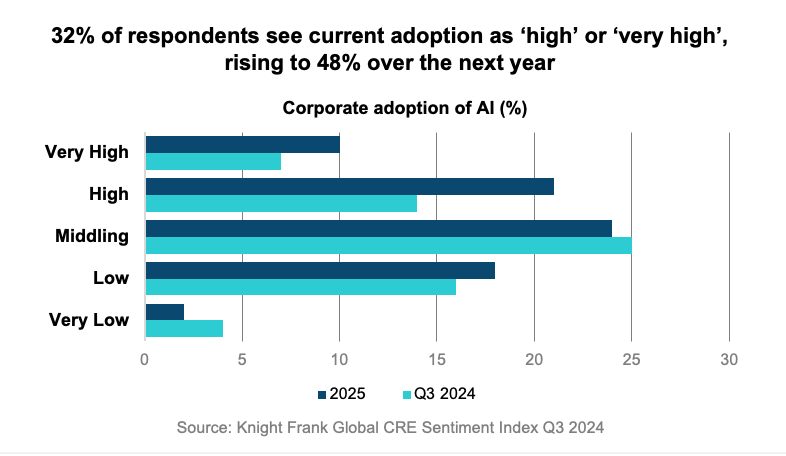
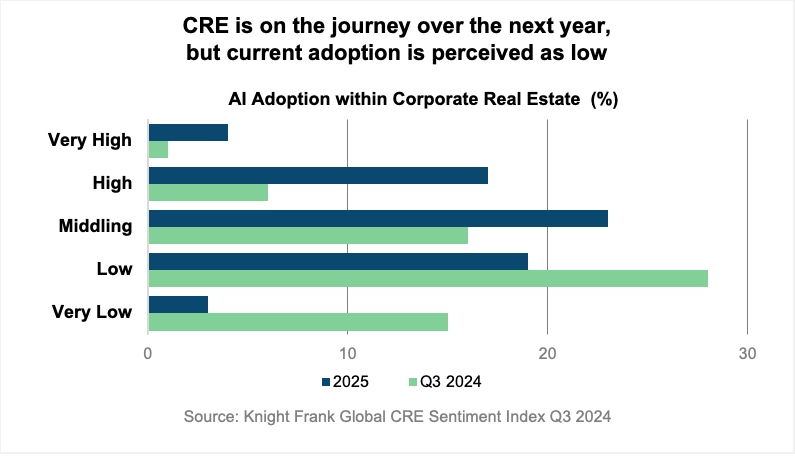
Technology as a crucial enabler in logistics
The logistics industry, a critical component of the real estate sector, continues to face challenges such as inflation and supply chain disruptions. As a result, resilience remains a key focus area. The complexity of external factors affecting supply chains necessitates better forecasts and faster adaptation capabilities. End-to-end supply chain visibility continues to be vital for network optimization, with technology serving as a crucial enabler as conditions evolve.
According to HERE Technologies, more than a quarter of logistics companies in the Asia-Pacific region are planning to invest in drones, robotics, and artificial intelligence and machine learning. These investments aim to address the complexity and interconnectedness of supply chains. AI technologies, in particular, can facilitate forecasts and scenario planning through digital twins, thereby mitigating risks and improving supply chain resilience and adaptability. Moreover, companies will be better equipped to monitor and understand energy consumption using IoT devices, identify potential energy savings, and reduce their carbon footprints.
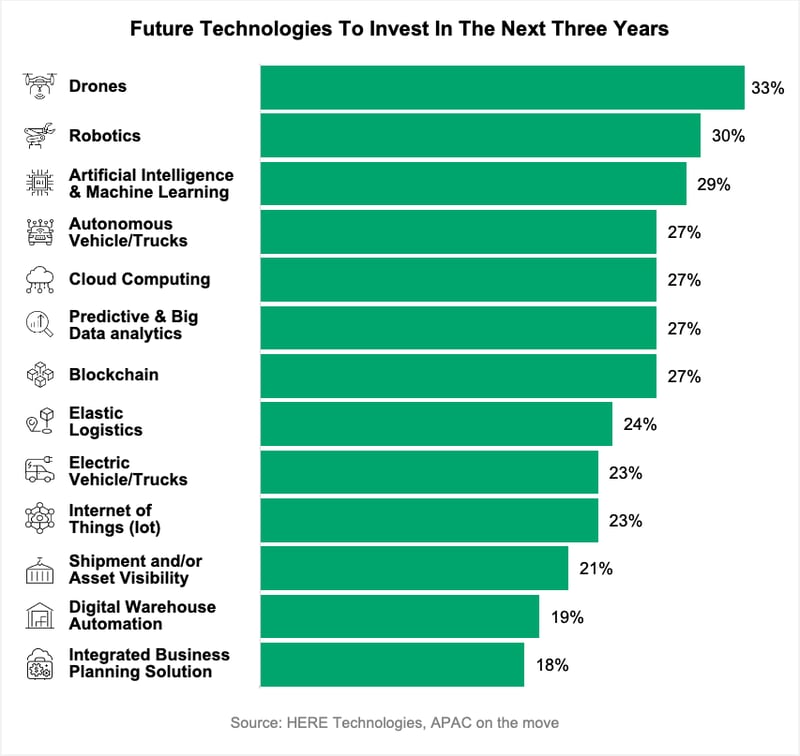
Looking ahead, the integration of AI and data analytics in the Asia-Pacific real estate sector is set to deepen and expand. Real estate leaders who successfully leverage these insights to make proactive, informed decisions will gain a critical competitive advantage, transforming their real estate portfolios into agile, high-performing assets. The challenges of implementation remain, but the potential benefits are too significant to ignore.
For more insights, please download the latest edition of Knight Frank’s Asia-Pacific Outlook series, Charting New Horizons: 25 Trends Shaping 2025, report below.
